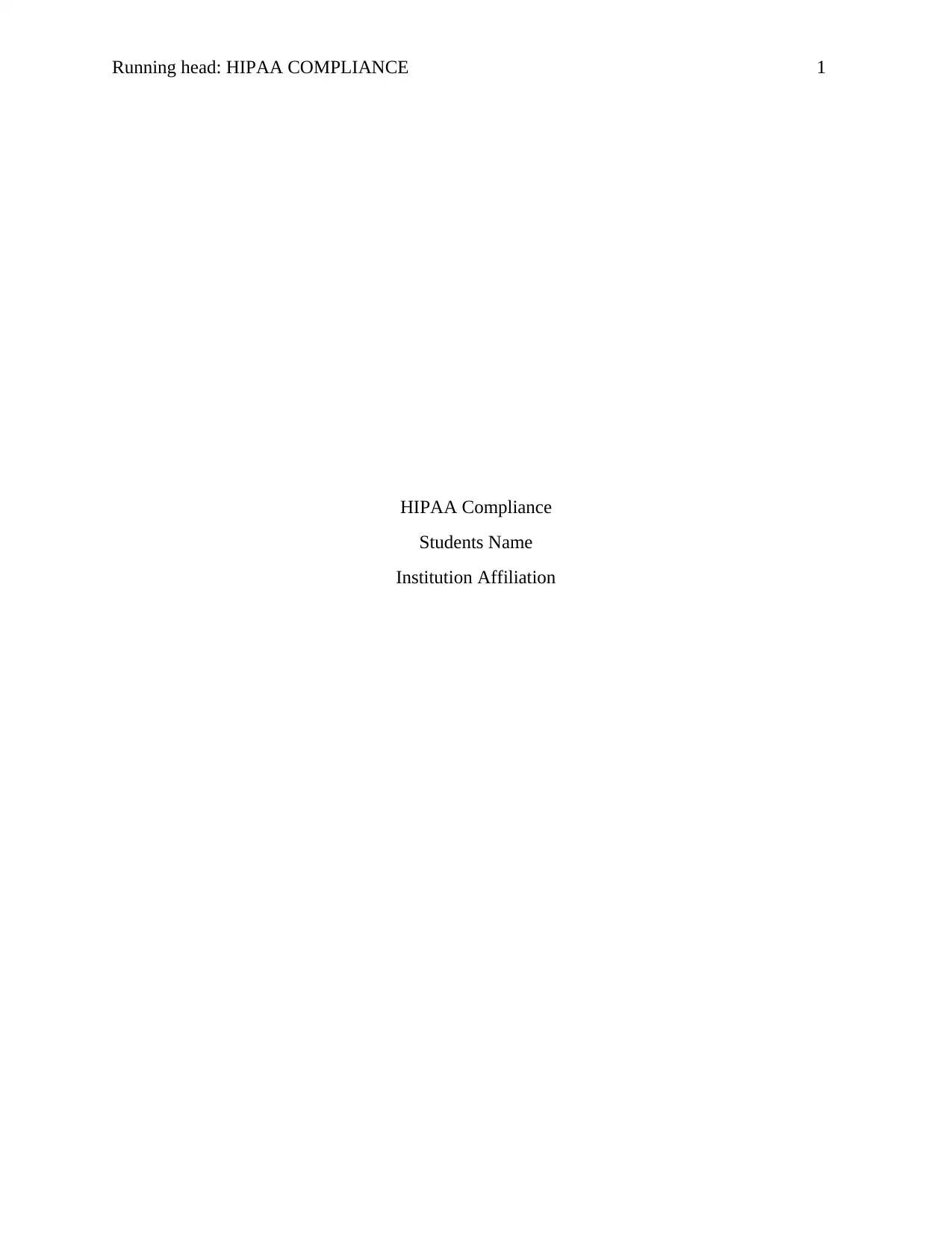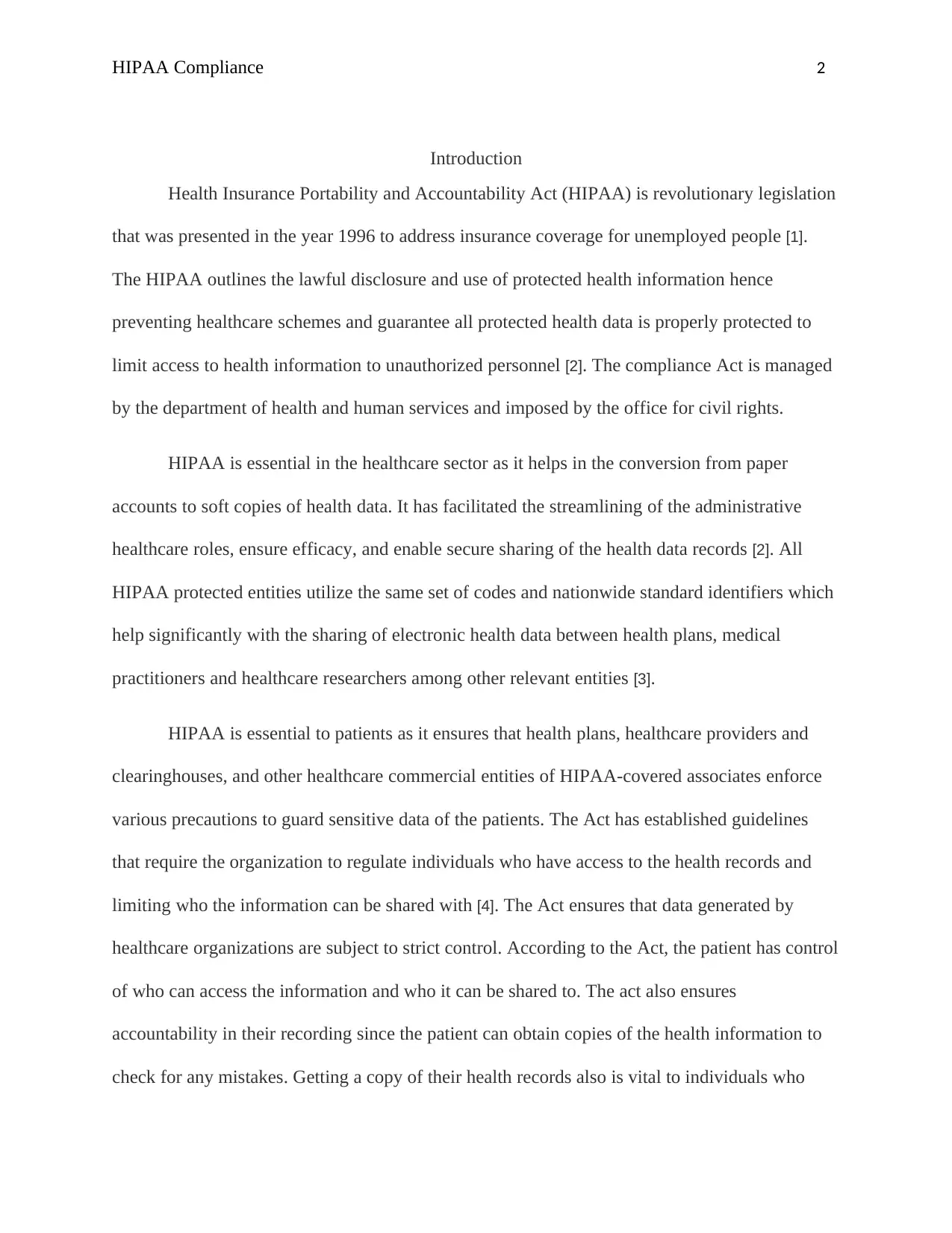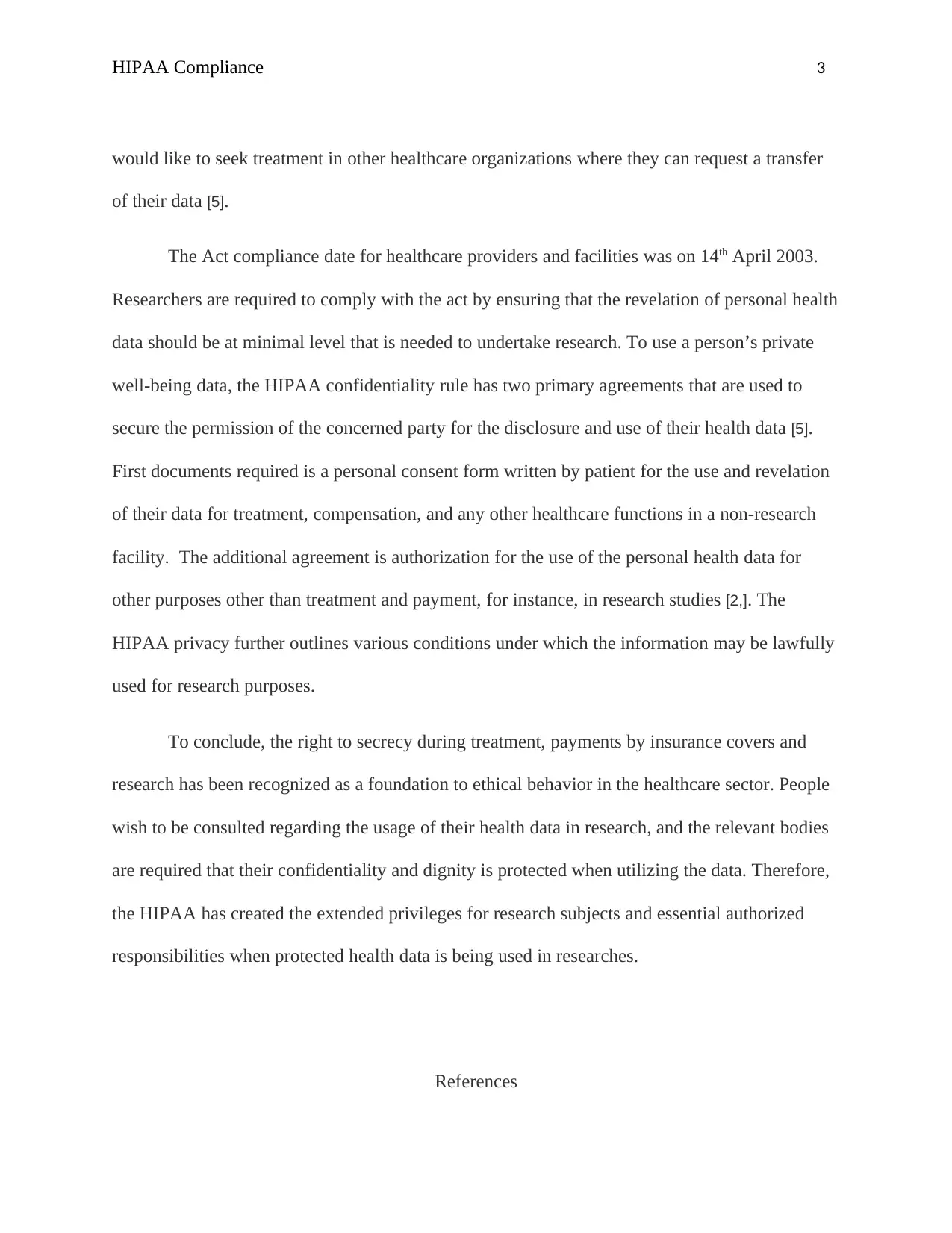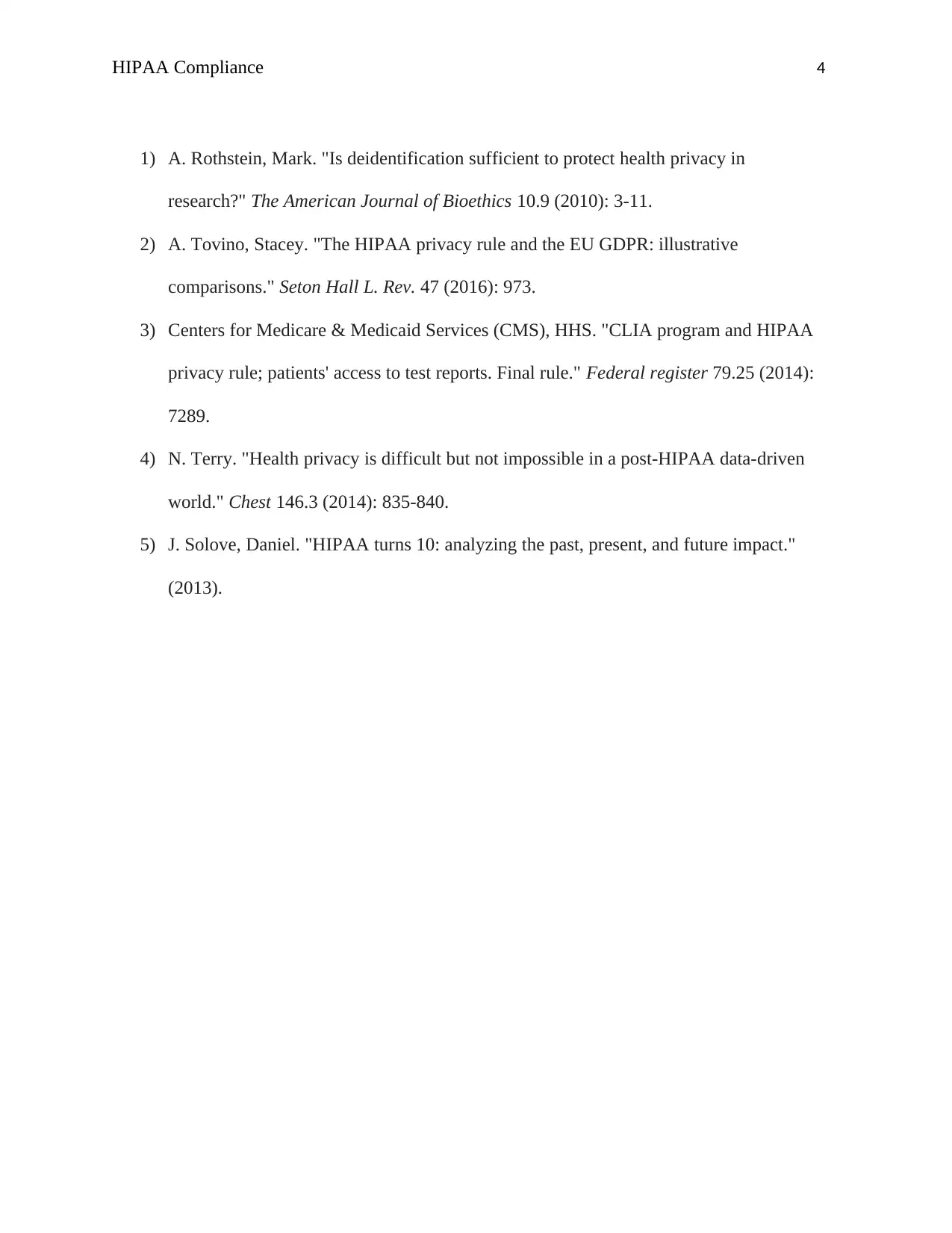HIPAA Compliance: Detailed Overview, Significance, and Regulations
VerifiedAdded on 2022/10/31
|4
|775
|172
Report
AI Summary
This report provides a comprehensive overview of HIPAA (Health Insurance Portability and Accountability Act) compliance, a crucial aspect of healthcare. It begins with an introduction to HIPAA, highlighting its role in addressing insurance coverage and protecting patient health information (PHI). The report details HIPAA's significance in the healthcare sector, emphasizing its role in streamlining administrative processes, ensuring data security, and facilitating the secure sharing of electronic health records. It outlines the regulations enforced by the Department of Health and Human Services and the Office for Civil Rights, emphasizing the Act's importance for patients, healthcare providers, and researchers. The report also covers the Act's compliance requirements, including patient rights regarding access to and control over their health information. It further explores the role of HIPAA in research, detailing the requirements for obtaining patient consent and the conditions under which PHI can be used for research purposes. The report concludes by emphasizing the importance of patient confidentiality and ethical behavior in healthcare, highlighting HIPAA's role in protecting patient privacy and ensuring accountability. References to relevant research papers are also provided.
1 out of 4











![[object Object]](/_next/static/media/star-bottom.7253800d.svg)